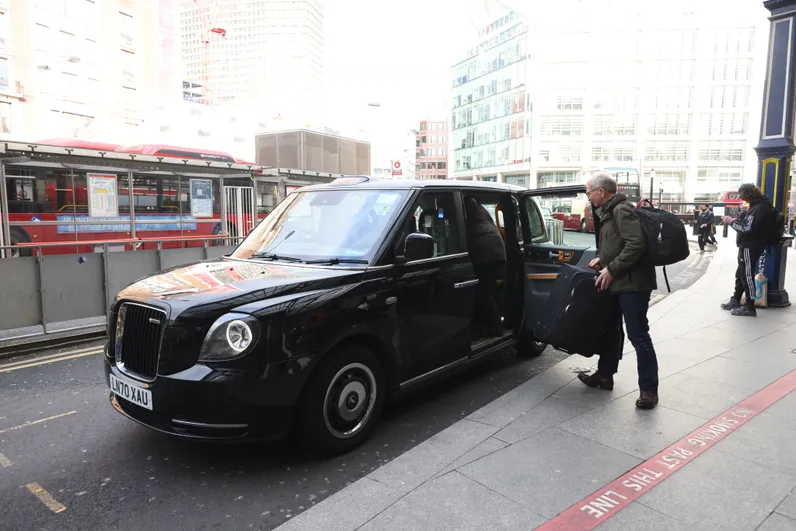
Rail strikes in the United Kingdom have led to a significant rise in demand for taxi services in towns across the UK as commuters seek alternative transportation options to reach their destinations. This sudden surge in demand has presented both challenges and opportunities for the taxi industry. The disruption caused by the strikes has left many people stranded, prompting them to turn to taxis for a reliable and convenient mode of travel.
Strikes Cause Commuter Chaos
The strikes have severely disrupted the normal functioning of the UK’s rail network. The strikes have resulted in overcrowded stations, long waiting times, and frustrated passengers. With reduced or cancelled train services, commuters have limited options to travel between cities and towns.
Increased Reliance on Taxis
Amid the rail chaos, taxis have emerged as a popular commuter alternative. Commuters who typically rely on trains now turn to taxis to ensure they arrive on time for work, appointments, or other commitments. With the flexibility to pick up passengers from their desired locations and drop them off at their destinations, taxis offer a convenient solution for those affected by the strikes.
Challenges for Taxi Services To Meet the Spike in Demand
The sudden surge in demand poses a challenge for taxi companies, as they need to ensure an adequate supply of available vehicles and drivers to meet the increased passenger requirements. It requires efficient management and coordination to manage the influx of bookings, especially during peak travel hours.
Traffic Congestion and Delays
With more commuters opting for taxis, road congestion has become a pressing issue in cities and towns. The increased traffic volume can result in delays, affecting both taxi drivers and passengers. Navigating through congested areas becomes time-consuming, leading to longer journey times and potentially dissatisfied customers.
Competition Among Taxi Services
The rise in demand has intensified competition among taxi companies. Companies are implementing various strategies to attract customers, such as discounted fares, loyalty programs, and improved customer service. This competitive environment compels taxi services to enhance their offerings and differentiate themselves from their rivals.
Opportunities for the Taxi Industry
The surge in demand due to the rail strikes presents a significant revenue growth opportunity for taxi services. With more passengers opting for their services, taxi companies have the potential to generate higher profits during this period. By capitalising on the increased demand, companies can expand their operations, invest in better vehicles, and provide improved services.
Building Customer Loyalty
The rail strikes offer taxi companies a chance to build customer loyalty by providing reliable and efficient services during a challenging time. Tax taxi services can leave a positive impression on passengers by ensuring timely pickups, courteous drivers, and seamless travel experiences. Satisfied customers are more likely to choose taxis as their preferred mode of transportation even after the rail services resume.
Partnerships with Businesses
Taxi companies can explore partnerships with local businesses to offer exclusive deals and discounts to customers affected by the rail strikes. Collaborating with hotels, restaurants, and other establishments can create mutually beneficial relationships and drive more business for both parties. Such partnerships can help taxi services expand their customer base and establish long-term connections.
Summary
As rail strikes continue to disrupt travel in the UK, the demand for taxis has soared. Commuters must have reliable alternatives to reach their destinations, and taxi services have stepped up to meet this increased demand.
However, taxi companies must navigate the challenges of managing the surge, dealing with traffic congestion, and facing fierce competition to capitalise on the opportunities presented by the rail strikes. By providing exceptional service, seizing revenue growth opportunities, and fostering customer loyalty, taxi services can emerge stronger from this period of disruption and establish themselves as dependable transportation providers for commuters across the United Kingdom.
